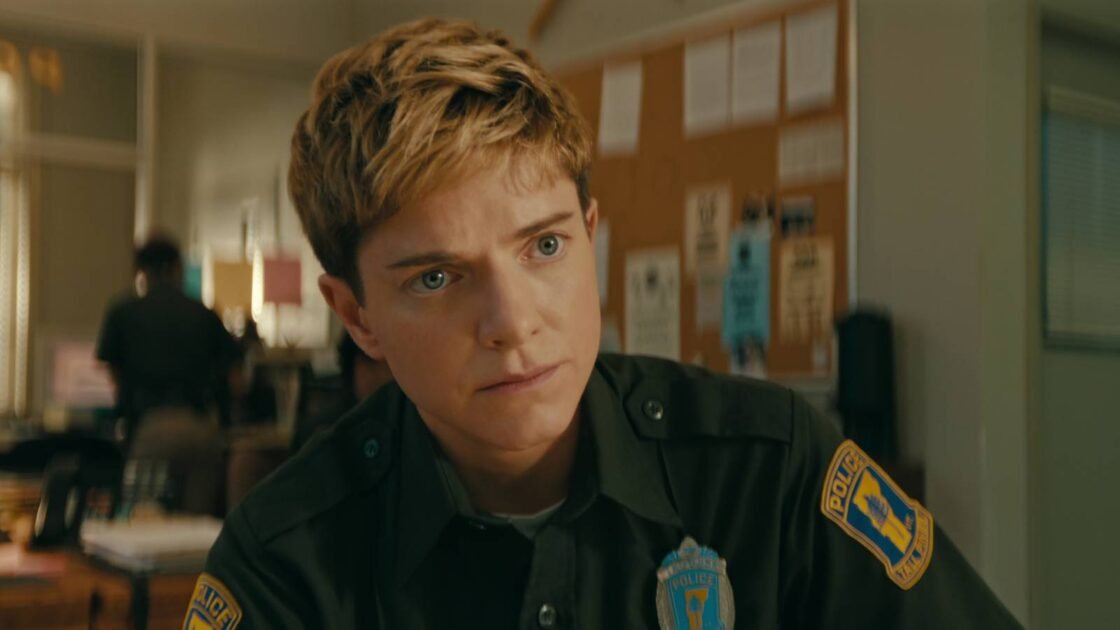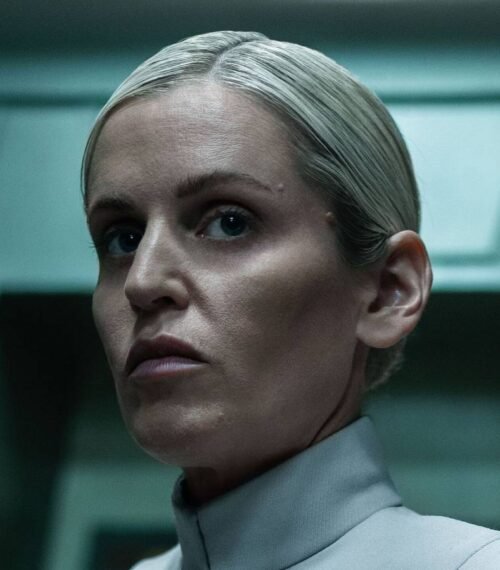Warning! Spoilers for Netflix's Wayward ahead!
Netflix's Wayward is climbing the streaming charts and ruffling feathers, all while subtly conveying a powerful and surprisingly controversial message. This miniseries is created by comedian Mae Martin, who stars as Alex Dempsey, a cop who moves to a small town called Tall Pines with his wife in the early 2000s. Before long, Alex realizes that the entire town, as well as the residential school, is all part of a cult.
On paper, Wayward appears to be a fairly standard psychological thriller. The divisiveness comes in as some viewers realized that Martin's character is a transgender man. Unsurprisingly, this resulted in a wave of complaints about a "woke agenda." This is furthered by the fact that Alex's transgender status isn't overtly connected to the central plot of Wayward, so many have called it unnecessary.
Of course, in reality, there needs to be no justification for transgender characters in media. Representation is important, regardless. However, I began to notice a subtle theme while watching Wayward. For a moment, I thought that Tall Pines Academy was going to be a metaphor for conversion therapy. However, the true message was far more unique.
Wayward's Message Is Unique Compared To Other LGBTQ+ Friendly Media
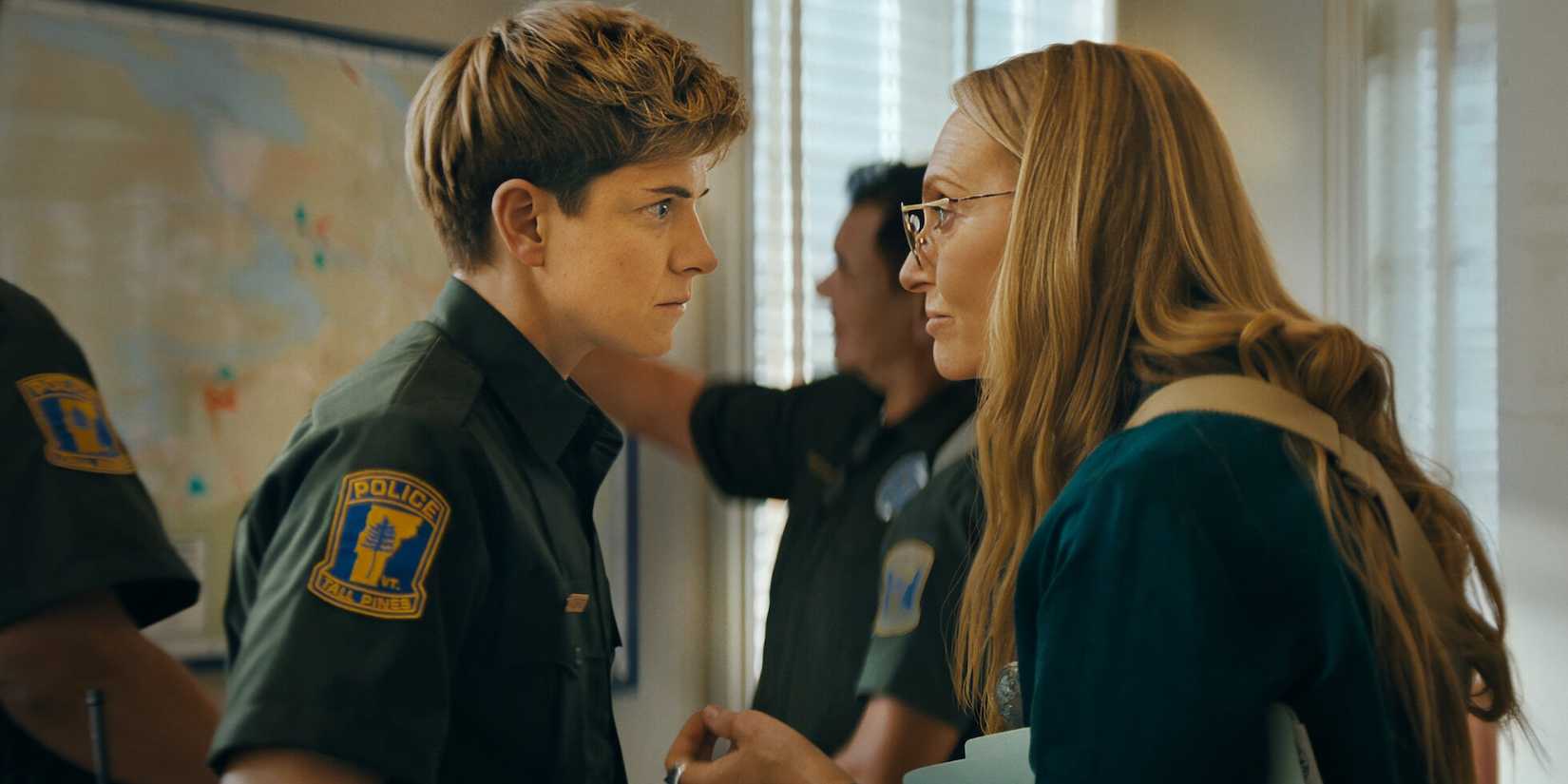
Mae Martin and Toni Collette's characters looking at each other in Wayward
The overt overarching theme and lesson of Wayward revolves around how we, as a society, treat troubled teens. Tall Pines Academy represents the very real institutions where, even today, teenagers are subjected to cruel methods of therapy and told that their heightened emotions are wrong and bad. Wayward brings this issue front and center—but how do the LGBTQ+ characters come into play?
Alex himself questioned a gay Tall Pines resident about whether the Academy had tried to "cure" him, and he was told instead that the institution encourages teens to be themselves, queer or not. I was a bit surprised by this, since it's incredibly evident in Wayward that Tall Pines Academy and the town cult are dangerous and unhealthy. They are progressive, but they're still the villains.
Of course, Wayward isn't claiming that LGBTQ+ acceptance is bad. Instead, the series is reminding viewers of nuanced duality. The message here is that progressiveness, though often treated as moral rightness, doesn't automatically equate to "good." In fact, acceptance of people's sexuality and identity should be the bare minimum. People can still be dangerous and abusive, while also embracing progressive ideals.
Mae Martin's Wayward Character Explores The Pitfalls Of Toxic Masculinity
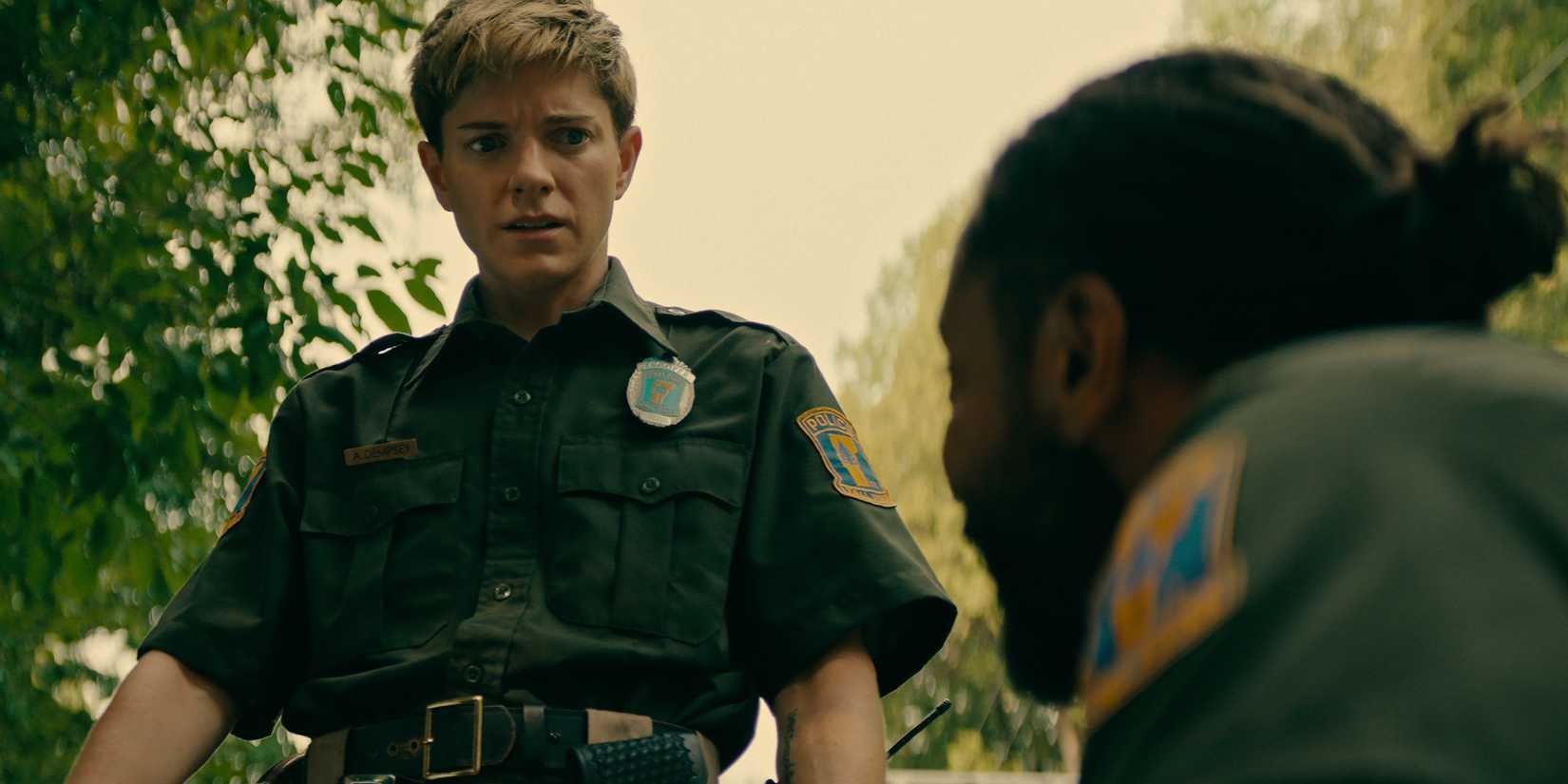
We quickly learn in Wayward that Alex had to leave his job in Detroit because he used excessive force against a perpetrator. Later, when we see Alex beat two characters to death, we understand precisely what this meant. It's also revealed in Wayward that Alex's only male role model was his father, who abused his mother. The whole thing is textbook, but Alex being trans is the fresh angle.
All of this furthers Wayward's previous message—that no one is exempt from toxic, inadvertent ideologies. Anyone, regardless of their gender, can be negatively influenced by toxic masculinity. Anyone, irrespective of their progressive mindset, can cause harm. It's an intriguing theme, and one that society truly needs.
Why Wayward's Subtle Messaging Is So Important For Society Today (Both In The LGBTQ+ Community & Out)
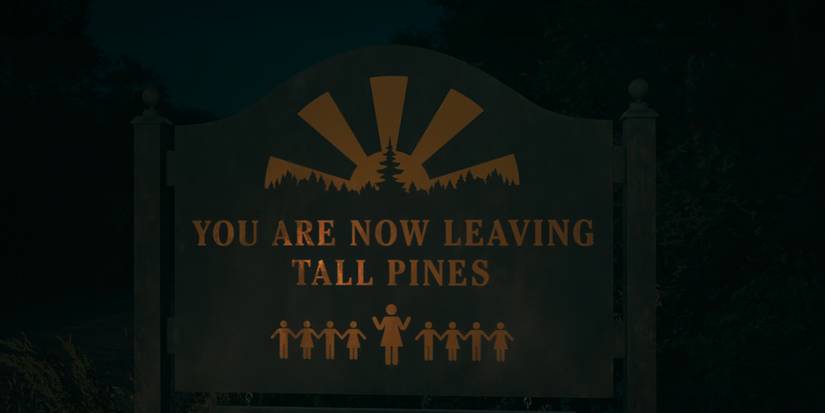
A road sign says You are now leaving Tall Pines in Wayward's finale
Ultimately, I'm delighted that Wayward didn't use its characters and themes to confront conversion therapy. Let's face it, the people who made it through Wayward don't need to be told that conversion therapy is bad. Chances are, if they didn't turn the show off in episode 1, they are already accepting of queer identities.
Instead, Wayward used these different elements to present LGBTQ+ viewers with important and relevant messaging. In today's world, it's relatively mainstream for businesses, schools, and communities to be LGBTQ+ friendly. However, it's far too common an experience to suddenly discover that there is supreme ugliness hidden behind the progressive mask. Sometimes, believing that signaled progressiveness equals safety puts LGBTQ+ people in danger.
Inversely, it's common for people both within and outside the community to think that their moral work is done if they are progressive. If they get everyone's pronouns right, then they must be a good person. Wayward subtly points out that dangerous, backward thinking can come from anywhere. It's each individual's job to reflect and keep doing the work.
Overall, it's no surprise that Martin's Wayward is divisive. However, it is somewhat ironic that the miniseries is criticized for being "woke" when, in a sense, it's actually quite critical of progressive virtue signaling.











































































































